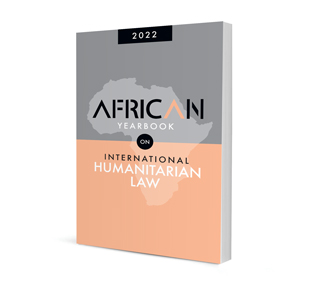
An analysis of policy-oriented jurisprudence at the International Criminal Tribunal for the former Yugoslavia (ICTY): A lemniscate of natural law, legal positivism and two liberalisms?
Author: Albert Nell
ISSN: 2521-2621
Affiliations: Lecturer, Faculty of Law, University of the Free State, South Africa
Source: African Yearbook on International Humanitarian Law, 2022, p. 20 – 34
https://doi.org/10.47348/AYIH/2022/a2
Abstract
Policy-oriented jurisprudence was used to substantively support certain arguments rendered by the International Criminal Tribunal for the former Yugoslavia (ICTY) in two cases, namely those against Dražen Erdemović and Pavle Strugar. Based on its limited use, the policy-oriented approach was clearly not a popular source of justification for arguments at the ICTY. However, its inclusion in structures of argument reveals at least some support for it. In the process of suggesting possible reasons why this particular theoretical approach was utilised in the justification of argument, this article aims to briefly discuss the broader philosophical tensions visible in the reliance on policy-oriented jurisprudence at the ICTY, viz, natural law/legal positivism, on the one hand, and the ‘two liberalisms’, identified by Darryl Robinson as inherent to international criminal law (ICL), on the other hand. Given that policy-oriented jurisprudence’s inclusion in ICL judgments makes its future invocation in ICL literature and judgments possible, the purpose of delving into the broader theoretical paradigms involved is important for the emergence of a coherent jurisprudence.